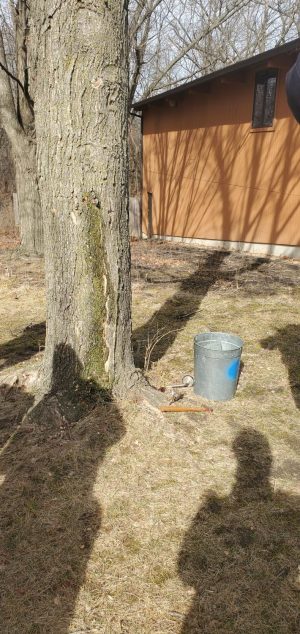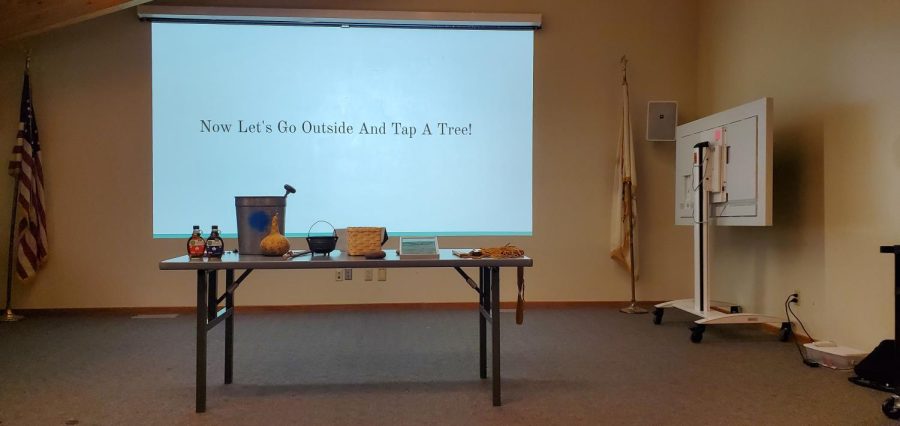Rock Springs Nature Center Hosts Maple Syrup Presentation
Rock Springs Nature Center hosts fun, free, and educational events for local children — and this past weekend, for local syrup enthusiasts.
On Saturday, February 18, Rock Springs hosted a free maple syrup making presentation, complete with historical artifacts, a tree tapping demonstration, and edible samples.
Maple syrup making isn’t a new process. Brock Rowland, program specialist for Macon County Conservation District, said Native Americans had developed the process over 200 years ago, using stone projectile points, wooden baskets and Sumac wood spiles rather than modern metal drills, buckets and spiles.
Rowland has been the program specialist for MCCD for five years, and has been hosting events since they began. He loves teaching people, especially kids, about nature.
“There are so many cool things outside, even in your own backyard,” he said. “When you stop to see the processes, it blows your mind.”
Rowland gave an engaging presentation and posed questions about maple tree icicles, boiling sap, and the syrup-making process to a kid-filled audience.
Rowland said he loves teaching the youth because he is “somebody who strongly believes they are our future. The future is in their hands.”
Though the presentation was attended by people of all ages, the content was geared toward a child’s understanding of the world. Rowland’s slideshow contained pictures of leaves and the layers of a tree, and a table at the front of the room displayed Native American stone tools alongside modern metal buckets and drills.
After he taught about the process, Rowland led the group outside for a tree tapping demonstration on a sugar maple, and allowed attendees to taste the sap that dripped from the spile.
“It tastes like nothing!” a child said.
Sugar maples have the best sap to make maple syrup from because they have the highest concentration of sugar. Sap is 99% water and 1% sugar, which means it takes 40 gallons of sap to make one gallon of maple syrup.
The presentation ended with samples of pure maple syrup and final questions from the kids. Rowland crouched down in front of a trio of children and patiently explained the difference between hardwood trees and softwood trees, and how maple syrup couldn’t be made from pine tree sap.
Rowland admitted he isn’t the best conversationalist when he doesn’t have specific questions to answer, but doesn’t feel that way around children. “I love it when we have kids that participate because you never know what they’re going to ask,” he said. “It’s easy to talk to kids.”
For more information on MCCD’s programs and events, visit https://www.maconcountyconservation.org/.

